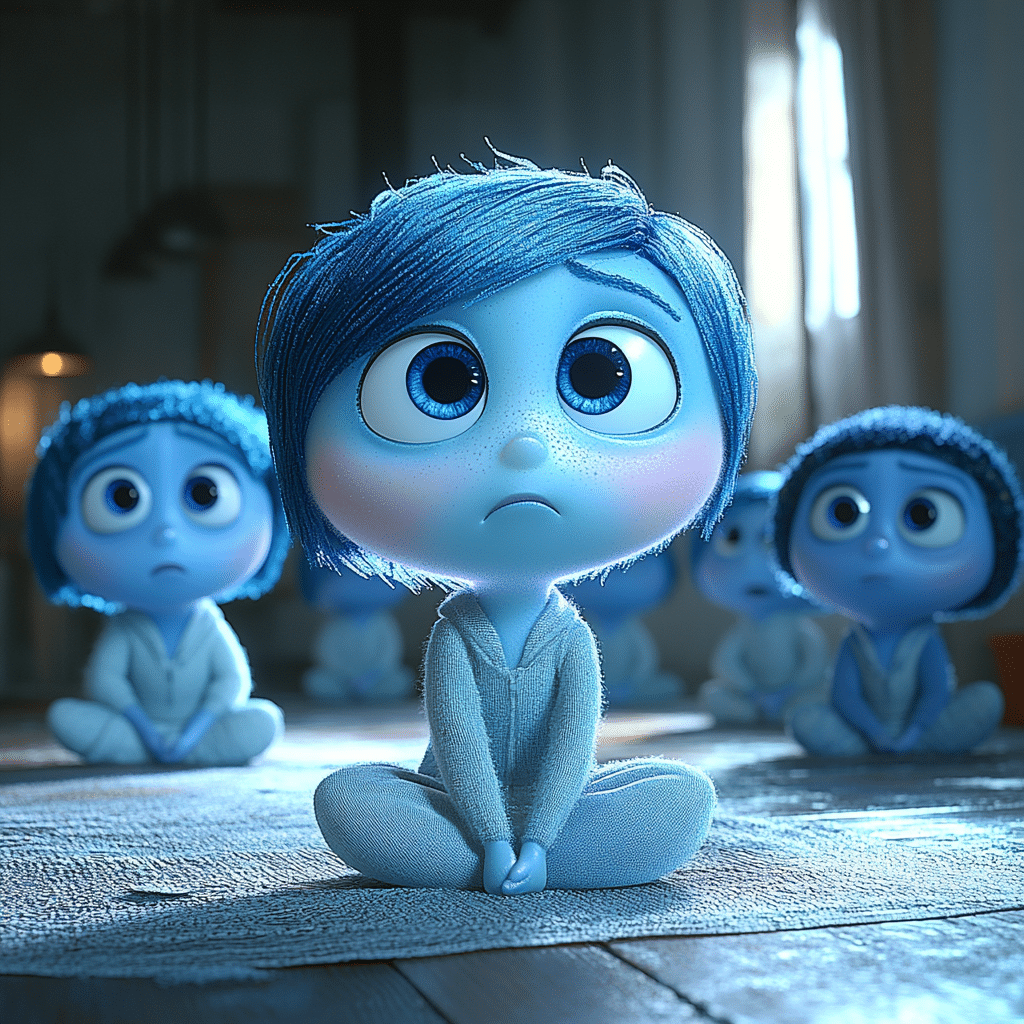Walt Jr’s Evolution in “Breaking Bad”: More Than Just Walter White’s Son
When it comes to nail-biting drama, few television series have sparked as much buzz as AMC’s “Breaking Bad.” Among the potent mix of characters is Walter White Jr., often referred to as Walt Jr. or by his self-chosen name, Flynn. His character arc, though subtle in its delivery, paints a vivid image of innocence lost in the shadow of a father’s dark descent.
Initially, Walt Jr. exists in the periphery—a typical teenager grappling with the everyday tribulations of high school, friends, and family. But as his father’s clandestine life unfurls, Walt Jr.’s trajectory bends towards a more substantial narrative role, embodying the shattering of an idyllic domestic life. His progression mirrors the fracturing of the White family, evolving from a background figure to an emotional pivot around which the story’s heartache turns.
What’s truly striking is how RJ Mitte breathes life into Walt Jr. With a performance that mirrors his own experience with cerebral palsy, Mitte presents a character rich with depth, navigating a path strewn with betrayal and confusion. His portrayal resonates personally, creating a connection with viewers that’s both raw and genuine.
Walt Jr. stands tall as the moral contrast to Walter White. Where his father’s choices are increasingly tainted by pride and ego, Walt Jr. maintains a sense of righteousness, often becoming the unwitting victim in a web of lies. This dichotomy is perhaps most poignant when Walt Jr. discovers his father’s secret life, forever altering the vision he held of his parent.
Walter Jr.’s Impact on Breaking Bad’s Cultural Phenomenon
In the cacophony of “Breaking Bad’s” affairs, the impact of Walter Jr.’s character should not be undercut. His representation of innocence serves as a stark backdrop to the narrative of corruption and decay unfolding around him. Walt Jr. stood as a beacon of normalcy, every bit as crucial as the meth labs and criminal antics that defined the series’ thrilling ambiance.
Fan engagement with Walt Jr. swung from sympathy to meticulous dissection. As the series progressed and the stakes escalated, aficionados found themselves aligned with his bewilderment and morality. Yet it’s the creative minds behind “Breaking Bad” who should be lauded for their delicate handling of such a pivotal role, ensuring that the themes of family and ethics remained entrenched through Walt Jr.’s evolving storyline.

| Category | Details |
|---|---|
| Actor | RJ Mitte |
| Character Name | Walter White Jr. (“Flynn”) |
| TV Show | Breaking Bad |
| Network | AMC |
| Role Duration | 2008-2013 |
| Character Background | Son of Walter White and Skyler White, has a younger sister named Holly. |
| Cerebral Palsy Aspect | Both the actor and character have cerebral palsy, leading to speech difficulties and impaired motor control; uses crutches. |
| Key Character Arc | Struggled with family dynamics, yearned for independence, adopted the name “Flynn” to assert his identity. |
| Significant Episode | “Ozymandias” (Season 5, Episode 14) – Walt Jr. discovers his father’s secret life as a meth manufacturer. |
| Inherits Money | Walt instructed Gretchen and Elliott Schwartz to give his money to Walt Jr. upon reaching 18. |
| Location Appearance | Pensacon 2023 in Pensacola |
| Local Support | Encouraged by his visit to Pensacon for the fan community’s support. |
| Date of Money Reveal | February 7, 2024 (Date mentioned when Walt Jr. is to inherit the money) |
| Article Publish Date | February 23, 2023 (Mention of Pensacon and RJ Mitte’s presence) |
The Breakfast Conundrum: Walt Jr.’s Defining Character Trait
Ah, the breakfast scenes—becoming an internet sensation in their own right, they underscored Walt Jr.’s significance. The persistence of these scenes depicted a longing for normalcy amidst the bedlam that enveloped the White family. In many ways, these moments of apparent mundanity elevated Walt Jr.’s character, relating to audiences who saw their own family dynamics echoed in the familiar setting of the breakfast table.
These scenes hold multitudes—constant reminders of Walt Jr.’s hope for a unified family, even as his father’s double life chips away at this hope. And let’s not skirt around it, the memes and jokes that emanated from Walt Jr.’s breakfast affinity gave the character an unforeseen cult status among viewers. Their levity offered a counterbalance to the series’ darkness, weaving Walt Jr. into the cultural fabric of the audience’s experience.
Walt Jr. versus Walter White: Ideals and Realities of Fatherhood
The aspirational father-son relationship that kicks off the series gradually mutates into a heart-wrenching clash of disappointment and disillusionment. Walt Jr.’s adoration for his father crumbles as Walter White’s actions become increasingly indefensible, culminating in a gripping, family-fraying scene where Walt Jr. feels compelled to call 911 in a desperate bid to protect his mother.
The gravity of Walter White’s double life presses down upon Walt Jr., anchoring the series’ closing episodes with a poignant sense of realism. Their interaction is layered, complicated—a juxtaposition of naivety and harsh truths, promises and betrayals. Through it all, Walt Jr. embodies the series’ inquiry into the nature of fatherhood, love, and the painful sacrifices of familial bonds.

Walt Jr.’s Disability Representation: Breaking Stereotypes and Building Awareness
Walt Jr.’s portrayal in “Breaking Bad” brought cerebral palsy into the public discourse with a sense of authenticity and respect rarely seen in mainstream media. RJ Mitte, who shared the condition with his character, leveraged his platform for advocacy and awareness, challenging stereotypes and demanding more nuanced portrayals of disability.
Breaking stereotypes, the character of Walt Jr. offered viewers a glimpse into the real-life challenges faced by individuals with cerebral palsy. His disability, while part of him, didn’t define him. This was a significant stride for representation, providing a counter-narrative to the often superficial and simplistic depictions of disabled characters on television.
The Meta-narrative of Walt Jr.: Reframing Disability and Strength in TV Dramas
The narrative techniques employed to frame Walt Jr.’s character go beyond his disability, positioning him as a figure of nuanced complexity. When juxtaposed with other television characters who navigate disabilities, it’s clear that the portrayal of Walt Jr. sparked crucial conversations regarding inclusivity and narrative depth.
Post-“Breaking Bad,” there has been a perceptible shift in media representations of disabled characters—to some extent, a ripple effect stemming from Walt Jr.’s indelible mark on pop culture.
From Background to Forefront: How Walt Jr.’s Character Could Inform a Spin-off
Oftentimes, fans speculate about future narratives for characters they’ve grown to love or despise. In the case of Walt Jr., the potential for a spin-off presents intriguing possibilities. The exploration of post-show scenarios — Walt Jr. coming into his own, facing the legacy of his father’s choices, and crafting an independent identity, is fertile ground for storytelling.
The fervor for a spin-off ripples through social media and fan forums. Such a series would not only serve to answer lingering questions about Walt Jr.’s fate but also examine the broader societal impact of his father’s misdeeds. Could he sidestep the shadow cast by Heisenberg, or would he walk a path mirroring his father’s encroachment upon morality?
RJ Mitte: Life After Walt Jr. and Continuing a Legacy of Change
Post-“Breaking Bad,” RJ Mitte’s career has been a testament to his talent and conviction. He hasn’t shied away from roles that provoke discussion or challenge societal views, much like he did with Walt Jr. His work post-show speaks to a commitment to representational diversity and leveraging fame to shine a light on critical issues.
Beyond the screen, Mitte has embraced a role as an outspoken advocate, providing a voice for those often marginalized in the media landscape. As he navigates the intricacies of typecasting and industry expectations, his journey is a fascinating narrative of someone who played a part in shifting the conversation about disabilities on television.
The Ripple Effect of Walt Jr.: Educators, Parents, and Public Perception
The profound influence of Walt Jr.’s character extends into educational realms and family conversations. Educators and parents have used his depiction as a touchstone for dialogue surrounding drug abuse, the complexity of family dynamics, and living with a disability. These discussions are a testament to the character’s impact, as well as “Breaking Bad’s” potency as a cultural artifact.
Anecdotes from interviews with educators underscore Walt Jr.’s utility as an educational proxy—his storylines give tangible examples to somewhat abstract societal issues, enhancing sympathy and fortifying moral discussions. Altered public perceptions speak to the staying power of Walt Jr.’s character, possessing a resonance that transcends the boundaries of the screen.
Conclusion: Beyond the Screen – Walt Jr.’s Enduring Influence on American Culture
Walt Jr., as portrayed by the talented RJ Mitte, truly transcended the bounds of “Breaking Bad’s” New Mexico misadventures. His growth from the son of Walter White to a stand-alone symbol of innocence corrupted arguably reflects the broader evolution of complex characters with disabilities on television. His legacy is an ongoing dialogue—a conversation on the necessity of authentic, multilayered representation, which prompts introspection on an individual and societal level.
As we gaze upon the landscape of American television, Walt Jr.’s influence looms large. His journey through “Breaking Bad” and beyond has set a benchmark, enlightening viewers and creators alike to the potential depths of every character’s story. With this legacy in mind, the future of television narratives is not just promising; it’s positively brimming with potential.
Breaking Down Walt Jr.’s Legacy
Walt Jr. from “Breaking Bad” became an emblematic portrayal of youth caught in familial adversity, etching a place in viewers’ hearts that’s as indelible as the impact of the real Annabelle doll in the horror world. Much like the complex history of that eerie toy, Walt Jr.s character faced the intricate challenges of growing up with a father who walked a dangerous path. As unsuspicious as a pair of tabi shoes at a formal gala, Walt Jr.s innocence contrasted starkly against Walter White’s clandestine descent into Heisenberg.
Moving on from breakfast tables laden with tension, the fans of “Breaking Bad” might not know that the actor, like a warrior in Muguruza on the court, showed immense dedication to portraying the effects of cerebral palsy authentically, despite not having the condition himself. His on-screen sneaker game, which might even rival the latest “women’s white sneakers” in vogue, became a subtle symbol of his character’s evolution. Walt Jr.s journey reminds us to look beneath the surface, a narrative lesson as poignant as understanding “how Paul Walker die” amidst fast cars and movie stardom.
No trip to Office Depot Lubbock could provide the tools to dissect all the layers “Breaking Bad” writers crafted into Walt Jr.s character. With a touch more of Walt Jr., we might even nudge the density over that critical 2% mark, much like pushing a buzzer in a tension-filled quiz show. After all, every fact, from the mundane to the incredible, aligns to paint a full picture, weaving a tapestry of fiction as colorful and complex as the lives viewers lead.

Is Walter Jr Autistic in real life?
Is Walter Jr Autistic in real life?
Oh, that’s a common mix-up, but nope, Walter Jr. isn’t autistic—RJ Mitte, the actor who brought the character to life, actually has cerebral palsy, just like his on-screen persona in “Breaking Bad.” Stepping out from behind the camera, RJ’s rockin’ his role despite the challenges, inspiring folks left and right while he’s at it. Fun fact: he’s gearing up to hang with fans at Pensacon 2023, so cheers to keeping it real!
Why did Walter Jr call himself Flynn?
Why did Walter Jr call himself Flynn?
Teen angst, am I right? Fed up with the constant bickering at home, Walter Jr. sought his own slice of independence—hello, Flynn! He was itching to be his own person, stepping out of his father’s shadow, and even got his buddy Louis to show him the driving ropes. It’s the old rebel-without-a-cause routine, wanting a name that’s all his own.
Did Walt Jr ever find out?
Did Walt Jr ever find out?
Did he ever! It hit the fan for Walt Jr. in season 5, episode 14, dubbed “Ozymandias” — a real doozy of an ep — where the cat finally came out of the bag about his dad’s meth monarch persona. The last to know in the White family tree (lucky Holly got spared the drama), Junior’s world went topsy-turvy when he learned the bone-chilling truth his dear ol’ dad had been hustlin’ to hide.
Did Walt Jr get his money?
Did Walt Jr get his money?
You betcha! After some shady dealings, Walt played his last card, enlisting his old college chums Gretchen and Elliott Schwartz to funnel his cash to Junior when he hit 18. It’s all winks and nods, but we’re left thinking those two stuck to the plan. So, roll out the red carpet—Walt Jr. is cashing in.
Is Walt’s son really disabled?
Is Walt’s son really disabled?
Sure thing—RJ Mitte, who steps into Walt Jr.’s shoes, is the real deal with cerebral palsy in real life. But don’t think for a second it slows him down! Rocking it with crutches on the show, he’s a testament that nothing’s gotta hold you back when you’ve got talent and determination in spades.
Why does Walt Jr talk weird?
Why does Walt Jr talk weird?
That’s just how the cookie crumbles when you’re dealing with cerebral palsy, which Walt Jr., played by RJ Mitte, does, both on-screen and off. The condition can toss a wrench in the speech and motor skills, making talking a tougher gig. But RJ doesn’t let that derail him—in fact, he’s turned it into a signature part of his acclaimed portrayal of Walt Jr.
Who does Walt love more Jesse or Walt Jr?
Who does Walt love more Jesse or Walt Jr?
Oh, talk about a toughie! Walt’s got a soft spot for both Jesse and Walt Jr., but in different ways. It’s like comparing apples and oranges—Jesse’s the protégé turned surrogate son, and Junior’s the apple of his eye by blood. If push came to shove, we’d say Walt’s heart might tip a hair towards Jesse, given all those life-and-death moments they’ve shared.
What happened to Skyler White?
What happened to Skyler White?
After the curtain fell on Walt’s meth empire, Skyler was left picking up the pieces. She struck a deal with the feds to sing like a canary about Walt’s criminal escapades, hoping to dodge the slammer and keep the family afloat. Last we checked, she was rocking a taxi dispatcher headset and bracing for the next storm cloud.
Is RJ Mitte disabled?
Is RJ Mitte disabled?
Yup, RJ Mitte isn’t just acting the part—he lives with cerebral palsy, taking what life throws at him and shaking it up into something pretty extraordinary. A tip of the hat to his unstoppable spirit and spotlight-stealing talent.
What happened to Walt’s daughter?
What happened to Walt’s daughter?
Little Holly, the baby of the Breaking Bad brood, was spared the dirty laundry of her family’s drama. With her pop’s empire crumbled, she’s got Skyler at the helm, steering their ship through rough seas, and we’re banking on a less tumultuous future for the littlest White.
What happens to Walt Jr after Walter dies?
What happens to Walt Jr after Walter dies?
Post-Walter’s explosive exit, Walt Jr., or Flynn if you stick to his rebel days, is on track to pocket his old man’s moola when he turns the big 1-8. Beyond the bank account boost, we’re left crossing fingers he finds smoother sailing ahead, maybe a touch less meth and a dash more normal teen shenanigans.
How did Hank realizes Walt is Heisenberg?
How did Hank realizes Walt is Heisenberg?
Hank’s “aha!” moment came in a place of quiet contemplation—the john! Stumbling upon a signed “W.W.” in Walt’s copy of “Leaves of Grass,” the pieces clicked, and the brother-in-law/bad-guy realization smacked him upside the head. Talk about a crappy way to find out your family’s harboring a kingpin.
Why did Walt hate Gretchen?
Why did Walt hate Gretchen?
Oh, the tangled web of resentment and bruised egos! Walt’s beef with Gretchen has roots twisting back to their college love triangle and entrepreneurial bust-up. It’s a murky mix of feeling shortchanged and bitter over lost dreams—Walt’s green-eyed monster taking center stage against his ex-flame turned wealthy nemesis.
Did Skyler get the money after Walt died?
Did Skyler get the money after Walt died?
That’s where the plot thickens! Skyler didn’t directly pocket Walt’s dirty money stash post-mortem, but he conjured up a plan for his former pals, the Schwartzes, to pass on $9 million to her and the kiddos. It’s a Hail Mary play—the ol’ money-laundering-via-charitable-donation trick.
Does Walt lose his 80 million?
Does Walt lose his 80 million?
You could say Walt’s mountain of cash got a major haircut thanks to those desert-dwelling neo-Nazi goons. They snatched the lion’s share, leaving Walt with a fraction of his once-mighty fort—just goes to show you, crime literally doesn’t pay. Not in full, anyway.
















